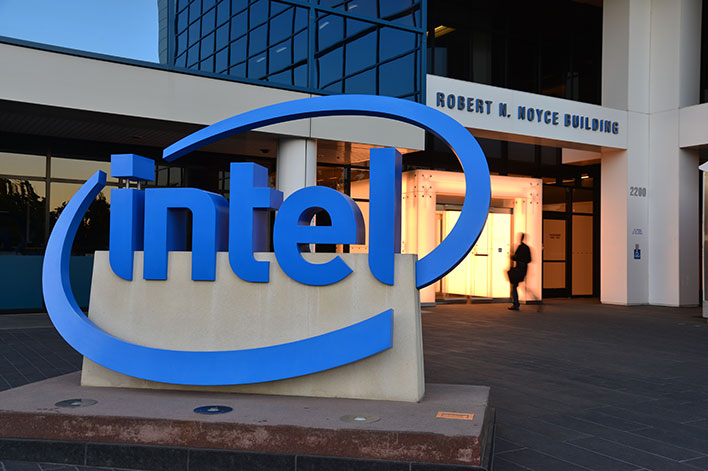Intel Emerges Victorious In Landmark $3 Billion VLSI Patent Infringement Lawsuit

Barring a successful appeal, Intel is already on the hook for $2.18 billion in damages a jury awarded to VSLI Technology LLC last month, over a series of patent infringement claims. In the second of three lawsuits, VSLI was seeking an additional $3 billion in damages for a different set of patents, but this time Intel emerged victorious.
This is somewhat a convoluted matter, more so than is usual in patent infringement lawsuits. It's rooted in events that were set in motion way back in 1999, when Philips Semiconductors acquired VSLI for $1 billion. Then in 2006, those acquired assets hitched a ride with NXP, which Philips had spun-off at the time. And that's just the beginning of the story.
The patents at the heart of the infringement claims trace back to SigmaTel Inc., a company that was acquired for $110 million by Freescale Semiconductor in 2008. Then in 2015, NXP came back into the picture and bought FreeScale Semiconductor for $12 billion. Four years later, VSLI emerged from the grave with the intent of suing Intel in pursuit of a windfall. And it got one.
VSLI does not actually make any products—these patent infringement lawsuits are its only source of revenue, and so far they've generated $2.18 billion in damages (pending an appeal). In this second trial, VSLI was seeking another $3 billion in damages for patents it claimed Intel used in its "Speed Shift" technology that enables processors to adjust the frequency and voltage to suit different workloads.
"Intel is pleased that the jury rejected VLSI’s meritless claims that Intel’s cutting-edge processors infringe expired patents on MP3 player technology," Intel said in a statement. "VLSI is a shell company created by Fortress, a Softbank-owned hedge fund, for the sole purposing of extracting billions from innovators like Intel."
During the trial, Intel contended its engineers spent years developing the company's processor technologies that are now found in a wide range of products, and that the patents did not offer up any new ideas even when they were issued two decades ago.
A jury agreed and denied VSLI's $3 billion claim. The fight is not over, though, as a third trial is set to take place in June, plus however many appeals there ends up being before the matters are settled for good.
To put all these figures into perspective, Intel last year generated a record $77.9 billion in revenue, for a healthy $20.9 billion annual profit.

